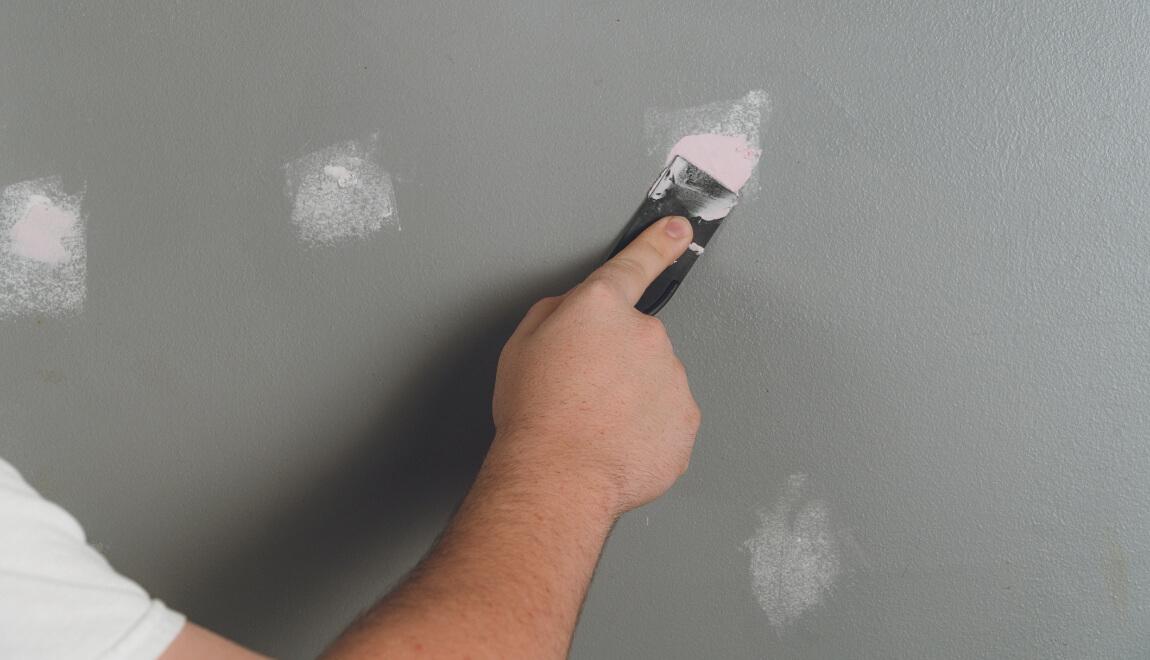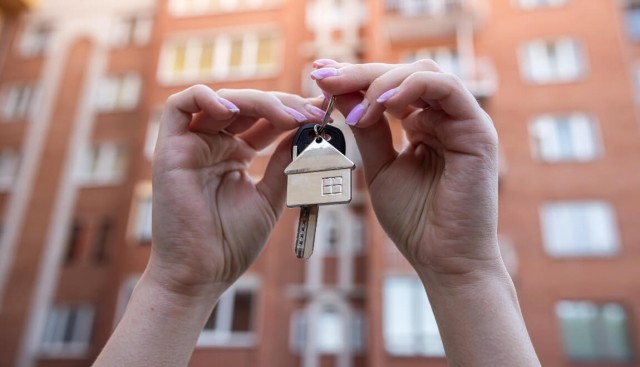In this article:
Curious about your security deposit? This article explains what your security deposit is, how much you can expect to pay, and the conditions for getting your deposit back.
- What is a security deposit?
- What's the difference between a security deposit and last month's rent?
- When do I pay the security deposit?
- When will I get my security deposit back?
- What happens if damages are more than my security deposit?
- If you haven't received your security deposit back...
Signing the lease to an apartment is an exciting part of your renter journey, and along this journey you’ll come across some renter lingo, fees, utilities, and deposits of which you may not be entirely familiar. When you sign your lease, you can expect to pay a specified amount of money up front, including a security deposit, an administration fee, and other possible costs such as pet, parking, and storage fees.
But what exactly is a security deposit? Before you sign on the dotted line, be sure you know exactly how a security deposit works — what it is, what it covers, how much it costs, when it’s due, and when it’s due back to you.
What is a Security Deposit?
A security deposit is defined as a fixed amount of money paid to a property manager or landlord that ensures the tenant will pay rent and follow the lease. But there’s something special about security deposits — they’re refundable. This means that you have a chance at getting the full or partial amount of your deposit back into your pocket.
A property manager or landlord holds onto this deposit throughout your lease. They cannot cash security deposit checks for the use of anything other than damages made to the apartment after the tenant has moved out. Once your apartment has been inspected and damage costs have been deducted (if any), your property manager or landlord will then return what’s left to you.
How much is a security deposit?
While some states have no limit to the amount a property manager or landlord can charge a tenant, most price-cap a security deposit at the cost of one month’s rent. However, some states allow landlords and property managers to charge up to three months’ rent for a security deposit. You may even find apartment communities that ask for as little as $100 for a security deposit. How much a security deposit costs will also depend upon your background check.
How is a security deposit calculated?
Landlords keep five main factors in mind when calculating the security deposit for their apartments:
- State law
- The cost of monthly rent
- The type and quality of apartment amenities
- Security deposits of competitive properties
- Rental application of potential tenant (credit score, criminal history, employment history, etc.)
A tenant with a lower credit score may be seen as more high-risk for neglecting to pay rent or moving out unexpectedly than a tenant with good credit. In another scenario, a renter who doesn’t make three times the rent may struggle to pay rent in full each month. Because of this, some apartment communities may seek out a higher security deposit from said tenants to offset the risk of losing money on a rental property.

What is the Difference Between a Security Deposit and Last Month's Rent?
If your lease states that your security deposit is to be considered your last month’s rent, then that money can only be used towards the rent. This payment cannot be used for damages to the apartment, and it will not be refundable to you as the tenant. If your landlord only requires last month’s rent upfront, and doesn’t require a security deposit in addition to this payment, then the property manager or landlord has taken financial responsibility upon themselves to fix any damages made to the unit by the tenant.
When Do I Pay the Security Deposit?
Generally, landlords and property managers require the security deposit before the tenant can receive their keys. Security deposits are paid at the lease signing with a money order, cashier’s check, or an ACH payment (electronic payment). Before you sign the lease, make sure you are prepared to pay the security deposit and other fees due at the time that you sign the lease.
When Will I Get My Security Deposit Back?
You will get your security deposit back anywhere from 30 to 60 days after your lease is up and you’ve moved out of the apartment, depending on state law. You will typically receive your security deposit back by mail in the form of a check, so be sure to notify your property manager or landlord of your new address to ensure a prompt delivery!
Because a security deposit is most often used to pay for damage to the apartment (done by the tenant), you may not get your entire security deposit back. This is why it’s so important as a renter to be sure to leave your apartment in excellent condition. When moving out, you should:
- Thoroughly clean your apartment
- Try to repair any damage you caused
- Be present during your move-out inspection (and take photos or video)
- Return all of your keys
If, by any chance, your property manager or landlord finds damage in the apartment, you should receive an itemized receipt with the balance (if any) of your remaining security deposit in the mail. This way, you’ll know exactly what damage was found after you vacated the rental, the repair or replacement costs, and how much of your security deposit is being refunded.
What Happens If Damages are More Than My Security Deposit?
The goal is to keep your apartment in good condition and get your full security deposit back, but things don’t always go as planned. In some cases, it’s possible for your landlord to need more funds than your original security deposit amount. The way your landlord must proceed varies from state to state, but in most cases, they will send you a letter that includes an itemized list of damages, repair costs, and ask you to pay the difference. If you don’t pay the difference, your landlord may be able to take you to small claims court.
While having to pay more than your original security deposit back is less than ideal, it’s best to pay off your debts to your landlord as soon as possible to avoid a stressful situation later. If you feel like you should dispute your landlord’s claim, seek legal counsel.

What if I Haven't Received My Security Deposit Back?
Check your lease agreement to see the time period in which you can expect to receive your security deposit back. If it’s more than the allotted time (by your lease and state law), try reaching out to your property manager or landlord either by phone, email, or a visit to the leasing office as a friendly reminder.
Frequently Asked Questions About Security Deposits
Is there a maximum security deposit that can be collected?
Maximum security deposit amounts depend on state law. Some states have a cap on the amount. Other states have no maximum, and the amount is at the discretion of the landlord. Before you pay a security deposit, check your state's rules.
Can I dispute my landlord’s claims and get my security deposit back?
Yes, you can dispute your landlord’s claims if you feel that your security deposit is being wrongfully withheld. During your move-in and move-out inspection, take pictures of each room, floors, and ceilings, so you have evidence in case there is a dispute about your security deposit. If the case gets taken to court, seek legal advice from a professional.
Can security deposits double as rent paid?
No, a security deposit is paid on top of rent. Before you move into your new apartment, most landlords will want you to pay the security deposit and first month’s rent.
What can a landlord deduct from my security deposit?
Landlords can deduct for unpaid rent, damages beyond normal wear and tear, or cleaning costs if the property is left in poor condition. They must provide an itemized list of deductions.
What should I do if my landlord claims excessive damages?
Request an itemized list of damages and repair costs. If you believe the charges are excessive, you can dispute them by providing evidence, such as photos of the property’s condition when you moved out.
What are reasons landlords can keep a security deposit?
Landlords can keep all or part of a security deposit for several reasons, including:
- Unpaid Rent: If you leave without paying all the rent owed, the landlord can deduct this from your deposit.
- Property Damage: Costs for repairing damages beyond normal wear and tear, such as holes in walls, broken fixtures, or stained carpets, can be deducted.
- Cleaning Costs: If the property is left excessively dirty or requires professional cleaning to restore it to its original condition.
- Breaking the Lease: If you break the lease terms, such as moving out early without notice, the landlord may use the deposit to cover losses.
- Missing Items: If appliances, furniture, or other items included in the rental agreement are missing or damaged.
Landlords are typically required to provide an itemized list of deductions along with any remaining deposit amount. Always check your lease agreement and local laws for specific rules.
Originally published on October 2, 2019






